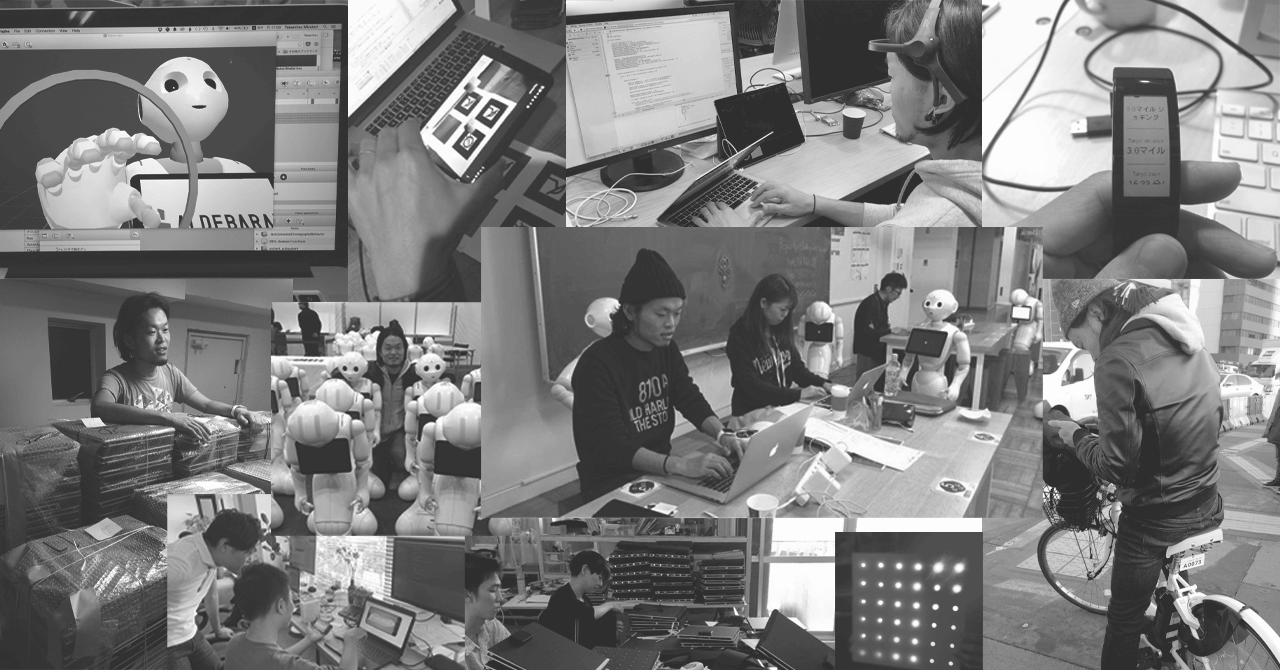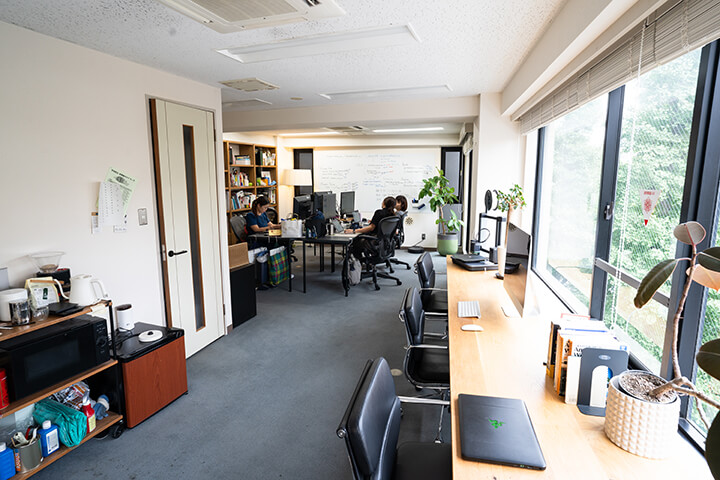Ethos
Philosophy and Values
How we work
Our Philosophy
Goldrush Computing celebrated its 14th anniversary in December 2023. Over the past decade, we completed over 100 projects. Through these years, what I find valuable and aim for the company to achieve has become clearer — our vision and direction are now transparent. My objective is to establish a professional work environment akin to the Nordic office settings where I previously worked.
Before founding Goldrush, I joined a 50 / 50 Japanese-Swedish company for 5 years. While working in both countries, I interacted mostly with Swedish colleagues and European supervisors from the Swedish office. Embracing the Nordic workflow became my norm, and working with various Japanese companies helped me understand my values more clearly.

Throughout my career that is approaching its second decade, I've created a diverse range of projects However, I've realised that the joy and satisfaction I derive from them don't always align with the end product. Despite working on impressive projects aimed at millions of users, my fulfilment lies in collaboration and progress with project teams. The caliber of the product is contingent upon the strength of the teamwork.
I've also noticed I am not the only person with this opinion by looking at the expressions of others involved with projects. Upon reflection, I've discovered that the Swedish work culture I experienced decade and a half ago, emphasises on - synergy and collaboration. This laid the foundation for the work environment I envision. This foundation has proven valuable not only to me but also to my colleagues at Goldrush Computing. Initially, I believed that I should place the company's value in the end product. However, I've come to realise that my true aspiration lies in practising the work style I value. There are four key parts to the work style that makes it special.
Our Work Culture
Values in Action
1.1-to-1 communication
“I don't think everyone will agree with / allow that” - It's likely that anyone who has worked in Japan has encountered this phrase from their superiors before.
Who is this “everyone”?
I have never heard of this phrase while I was working in Sweden.
They instead would say “I don’t agree with you.”
I believe this is the true form of 1-to-1 communication.
- Speak only for yourself.
- If you are hesitant on your opinion, then you do not have enough information to form an opinion so you must ask “what happens in this context?”
- After you've familiarsed yourself with your audience / listener, think of your own opinion and express it.
This all may seem obvious and common sense however, in Japan it can be a rare scene.
My goal is to integrate this communication style into Goldrush Computing.
2.Distinguishing honesty and facade apart (Honne and Tatemae / 本音と建前)
In northern Europe, the objective was to communicate your ideas or current problems occurring in a way that is as comprehensible as possible to the other person. The importance is placed in comprehensibility. In Japan, direct confrontation is evaded to a point where various facts are placed between people’s honest feelings and their facade / outward appearances, expecting the other person to interpret the unsaid. If you can’t read between the lines, it is somehow your responsibility and fault. In cases where one fails to perceive this, it can sometimes become the responsibility of the one who can't perceive for some reason. In the past, there were times when the speaker couldn't distinguish between their genuine opinions and the facade of their opinions. This led them to sometimes mix falsehoods within that gap in an attempt to appear more agreeable.
At Goldrush, we aim to avoid this ambiguity.
There may be instances where you may disappoint others or cause arguments. However, to maintain the 1-to-1 communication style which I idealise, it is imperative to not force the other person to read between the lines.
3.Chivalry
The thing I lacked the most while I was working in Sweden was “To form an opinion independently from my individual personality and prioritise my position in the workplace.” The superiors and managers in Sweden would get heated during their discussions at work and may struggle to agree with each other. This did not change the way they interacted with each other outside of work, talking to each other as equals as they understood that the words of argument strictly came from their position at work, being as objective as possible. Even when discussions get intense with personal emotions getting in the way of things, at the end of the day, forgiveness and the ability to move on was something I felt was impressive.
This stance / attitude towards each other reminds me of a knight’s chivalry.
It is important that we do not take others' words as a personal attack but rather a professional opinion which aligns with the speaker's role in the company, even with high tensions. At Goldrush Computing, thinking independently from your own personal feelings, and conversing in a stricly objective and professional manner is something we strive by.
4.Fika
The morning of the people at the Swedish office starts early as people arrive at the office as early as 6AM. Instead of facing the monitor first thing in the morning, the day starts off in front of the coffee machine, talking to colleagues in a casual manner. Some may also choose to eat breakfast in the dining area. At 3 in the afternoon, people take part in “Fika”, which is tea time. All departments have a Fika room where people partake in drinking coffee, drinking tea, eating cookies, cakes and etcetera for about 30 minutes. Attendance is compulsory and if you stay at your desk to continue work, someone always makes sure to bring you over to the Fika room.
Each department has a rotation for Fika duty, and that individual is responsible to get cakes and cookies before Fika.
Contrary to Japan, Sweden almost did not have a “drinking gathering” (common way for adults in Japan to get together as a social event) at all. To make up for it, every morning with coffee in one hand, everyone tends to talk about events of the last weekend and work at hand which helped me understand my colleagues and my job to a better degree as well as having a social event everyday. Although I have not yet managed to integrate an afternoon Fika into my own office everyday, I try to bring muffins and cakes I brought from the cafes of Harajuku to have a Fika session as often as possible.

The knowledge and experience gained from working in the Norse and Sweden allowed me to deconstruct and abstract what is missing from my 14 year old Japanese work environment, realise what I want to put into practice and create a vision for the future. Of course, Japanese offices also have certain qualities such as each individual’s sense of responsibility and commitment that are superior, but that is a quality that is almost compulsory/something we can already do in our daily lives as a Japanese person. I wish to achieve something that Japanese people tend to find difficult and embed my company’s values within those attributes.
I want to achieve these qualities first at Goldrush Computing, then with clients and partners that we will work in conjunction with. I wish that this way of thinking and working becomes normalised in the generations to come.
Founder and CEO, T. Mizutori
CEO Profile
Representative Director Biography
- 2002
Graduated from Department of Industrial and Management Systems Engineering, School of Science and Engineering, Waseda University
- 2004
Completed Master's Program at Graduate School of Media and Governance, Keio University
- 2005-2009
Engaged in development of GSM / W-CDMA mobile phones at Sony Ericsson Mobile Communications Inc.
- 2009
Founded Goldrush Computing Inc.